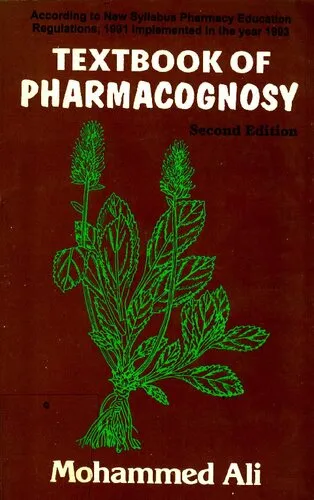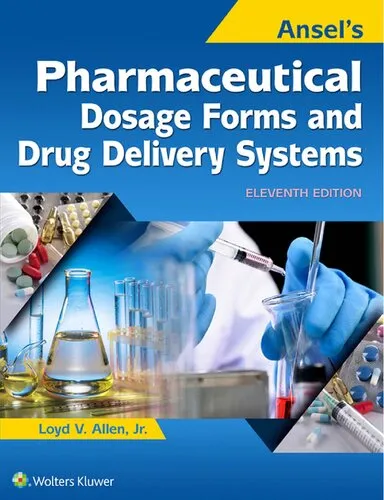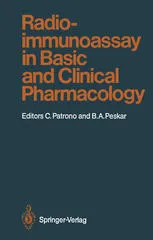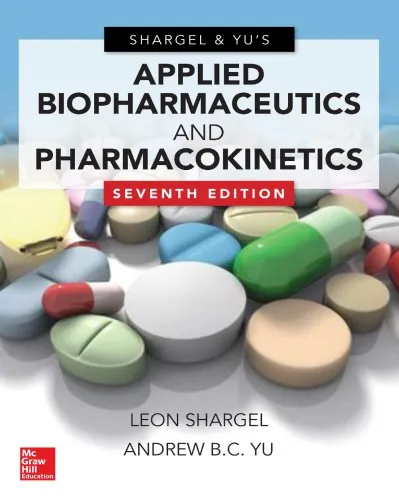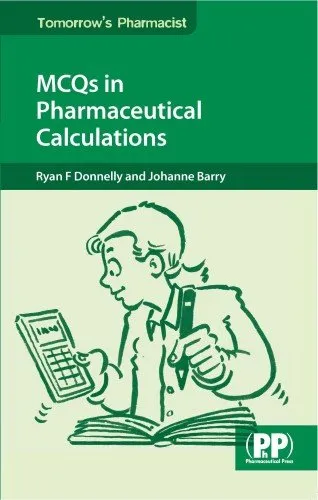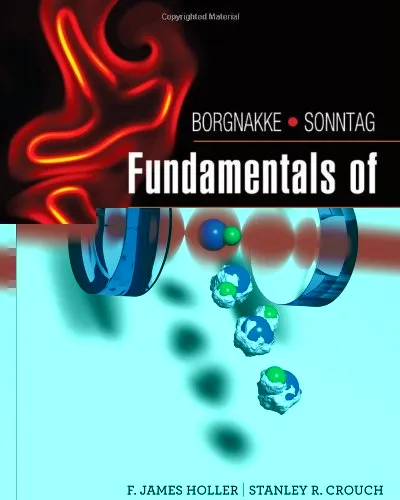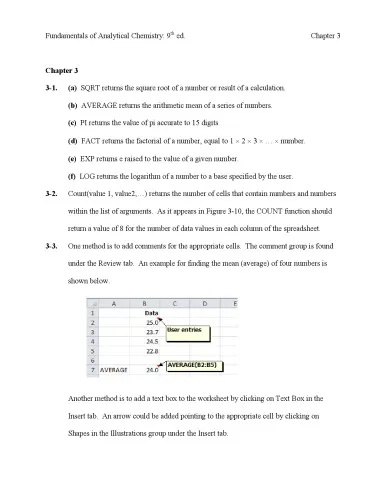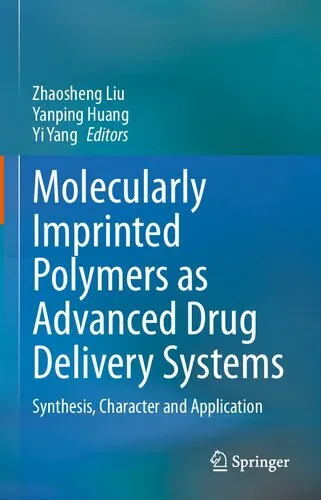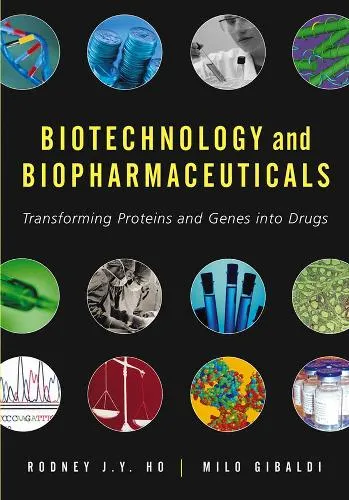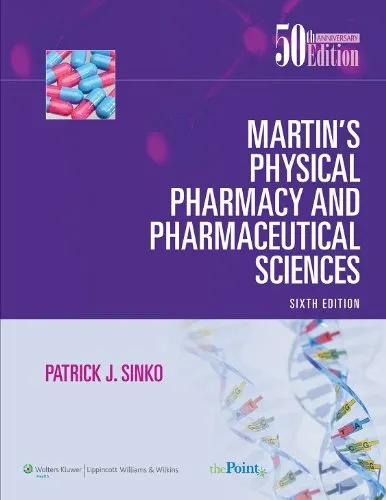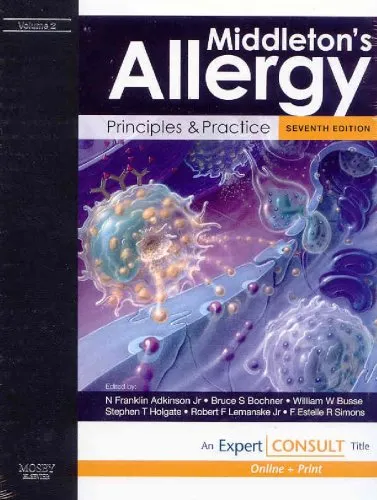Monoclonal Antibodies: Methods and Protocols
4.5
Reviews from our users

You Can Ask your questions from this book's AI after Login
Each download or ask from book AI costs 2 points. To earn more free points, please visit the Points Guide Page and complete some valuable actions.Related Refrences:
Introduction to 'Monoclonal Antibodies: Methods and Protocols'
Monoclonal antibodies play a transformative role in modern science and medicine, ranging from targeted therapy in oncology to revolutionary diagnostic applications. 'Monoclonal Antibodies: Methods and Protocols' serves as an invaluable resource for researchers, professionals, and students looking to explore the remarkable advancements and techniques that define the monoclonal antibody field. Edited by Maher Albitar, this carefully curated work provides a comprehensive and practical guide to leveraging monoclonal antibodies for research and therapeutic purposes.
The book offers a detailed exploration of both fundamental and advanced topics, serving as a bridge between the foundational science of monoclonal antibodies and their translational applications. Presented in a methodical format, it is part of the trusted and widely acclaimed Methods in Molecular Biology series. Whether you are a biologist, immunologist, oncologist, or a bioengineer, this book equips you with actionable protocols, insightful discussions, and expert perspectives tailored to your academic and professional needs.
A Detailed Summary of the Book
The book delves into the creation, handling, and application of monoclonal antibodies with precision and clarity. It begins by addressing the fundamental principles behind hybridoma technology, the method used for monoclonal antibody production. Subsequent chapters unravel intricate methods of antibody engineering, such as humanization, bispecific antibody generation, and affinity maturation. These methodologies are outlined in a manner that balances technical intricacy with practical execution.
Furthermore, 'Monoclonal Antibodies: Methods and Protocols' places significant emphasis on the clinical and therapeutic applications of monoclonal antibodies. With advances in personalized medicine, the book explores how monoclonal antibodies are being utilized to target specific cancers, autoimmune diseases, and viral infections. Thorough discussions also extend into molecular diagnostics, elucidating their role in biomarker identification and quantification.
What sets this book apart is its attention to detail in protocol development. Each chapter provides clear procedural steps, troubleshooting tips, and helpful annotations to streamline experimentation. The structure allows readers to gain actionable insights and hands-on experience, fostering a deeper understanding of both conventional and cutting-edge approaches.
Key Takeaways
- Comprehensive coverage of hybridoma technology for monoclonal antibody generation.
- Techniques and protocols for engineering therapeutic antibodies, including humanization and bispecific antibody creation.
- Detailed methodologies for development and validation of monoclonal antibodies in diagnostics and therapy.
- Insights into quality control, scalability, and regulatory aspects critical for clinical translation.
- Troubleshooting guides and technical tips to overcome common experimental challenges.
Famous Quotes from the Book
"Monoclonal antibodies are more than just tools of science; they are the bridge between fundamental research and revolutionary medical interventions."
"Precision and reproducibility in monoclonal antibody design are prerequisites for unlocking the mysteries of the human immune system."
Why This Book Matters
The significance of this book lies in its meticulous attention to both detail and context. As monoclonal antibodies continue to redefine diagnostic and therapeutic landscapes, understanding their production and application has become increasingly essential for professionals in life sciences and healthcare industries. By compiling state-of-the-art methodologies, protocols, and insights, this book empowers readers to harness the full potential of monoclonal antibodies in their respective fields.
Moreover, this book fosters a culture of innovation and precision through its rigorous scientific approach. Whether working to engineer antibodies for combatting emerging diseases or studying their behavior in diagnostics, researchers will find this book to be an indispensable reference. The inclusion of troubleshooting strategies further ensures reproducibility and optimization of results, addressing common challenges in laboratory settings.
The educational value of 'Monoclonal Antibodies: Methods and Protocols' cannot be overstated, as it equips its audience with the expertise and tools needed to navigate the rapidly evolving biomedical landscape. Its blend of fundamental knowledge and practical application makes it a critical resource for academic researchers, industry professionals, and anyone pursuing excellence in antibody-based science and medicine.
Free Direct Download
You Can Download this book after Login
Accessing books through legal platforms and public libraries not only supports the rights of authors and publishers but also contributes to the sustainability of reading culture. Before downloading, please take a moment to consider these options.
Find this book on other platforms:
WorldCat helps you find books in libraries worldwide.
See ratings, reviews, and discussions on Goodreads.
Find and buy rare or used books on AbeBooks.
1456
بازدید4.5
امتیاز0
نظر98%
رضایتReviews:
4.5
Based on 0 users review
Questions & Answers
Ask questions about this book or help others by answering
No questions yet. Be the first to ask!

